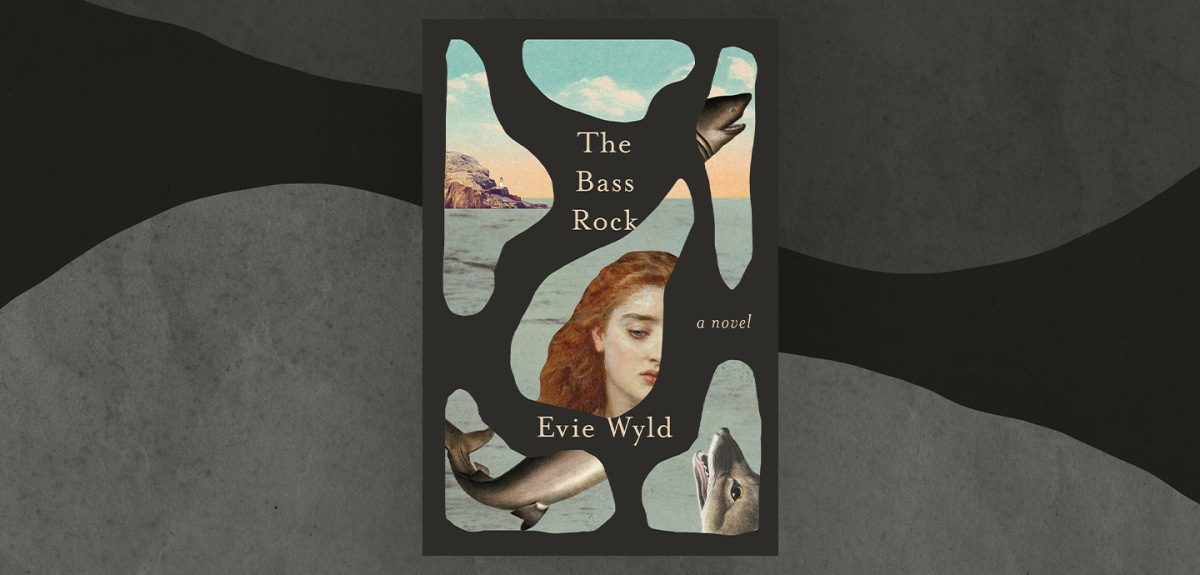[ad_1]
In the opening pages of Evie Wyld’s third novel, The Bass Rock, Viv notes: “Somewhere, out in the darkness, I can hear waves breaking against the Bass Rock though I cannot see it.” It is a literal reminder of the story’s setting — the east coast of Scotland, where the rock rests a mile offshore — and a gentle nudge that readers should attend to the unseen, to the immovable presence with a shadowy past.
Like Sarah Waters and Attica Locke, Hannah Kent and Celeste Ng, Evie Wyld writes novels that are fast-paced page-turners with meticulously crafted narratives. There is an awareness of the relationships between personal conflicts and social issues that creates a reverberating tension in her storytelling. Expansive themes — victimization and power, isolation and independence — are encapsulated in characters’ experiences so the social commentary is embedded in the plot.
So pervasive are the dark forces of misogyny in The Bass Rock that every element of the story exposes vulnerabilities. Talk of tide transforms into talk of backwash, talk of dinner becomes talk of juices and carcasses, and talk of cupboards leads to talk of latches: underbellies, remnants, and confinements. Zippers don’t join, they have teeth. A hesitant smile reveals canines on bitten lip. Pregnancies are lost and body parts are found.
A character in Wyld’s debut novel, After the Fire, a Still, Small Voice describes its Queensland, Australia setting like this: “It’s a special place, got enough violence in the dirt to strike a cow dead, but I like it here.” The characters in The Bass Rock seem to share that conviction. Three sets of characters inhabit this landscape: one early eighteenth century, one post-WWII, and one early twenty-first century. Anybody can be victimized, and everybody is inherently capable of violence: “I’m too afraid of what I did and who I am and what it means that I did that.” In medieval times, the Bass Rock was the site of a castle, which was used as a prison in later centuries.
The historical setting is captured with a light touch (through details including communication methods, ease and means of travel, and household amenities) so that the focus remains on the emotional landscape. Wyld emphasizes enduring aspects of human nature, displaying but not overstating the relevance to present-day readers: “The village is not what it was. Their relief of having someone to blame. There was a need for it, in these times.” This eighteenth-century observation is a twenty-first-century reality.
The Bass Rock engages readers’ senses from the outset. Sometimes Wyld selects atmospheric and readily recognizable details, like the “gentle skit of the harbour boats and their sails connecting with their masts,” a father’s “snores in snaps and shudders,” and a “regular throbbing itch.” Even these possess a rhythm that subtly buoys the novel’s relentless pacing. Often the details specifically reflect a dimension of the story, encapsulating vulnerability and raising questions about agency, like the “inner flesh of the prawn…the whitest thing” and the view of a woman on a magazine cover like “a puppet at rest.”
Even on the first page, readers catch a whiff of that “smell, like a dead cat in the chimney in summer, a smell so tall and so broad that you can’t see over or around it.” Wyld walks the line between generalization and specificity deftly, so that readers cannot escape the stench of it all. The Bass Rock is a close study of the visceral, the ephemeral. Even the walk-on characters fundamentally support the novel’s themes. A woman buying ice-cream has this to say: “We’re just breezing in and out of the death zone. Wading through the dead. You know how sometimes you can smell it on a man, sometimes you just know – if he got you alone, if he had a rock…you know that thing when you feel it? Like your blood knows it.”
Traps and tripwires, perpetrators and predators, caresses and carcasses: Evie Wyld’s The Bass Rock is a concatenation of tender horrors. “She sat back and looked out the window. The Bass Rock was completely obscured by mist, and large raindrops clung to the window. She ought to be happy. She ought to be.” Readers ought not to be so satisfied at the end of The Bass Rock, with such a stench and so many sorrows, but Evie Wyld entertains while she provokes. Readers ought to be happy.

FICTION
The Bass Rock
By Evie Wyld
Pantheon Books
Published September 1st, 2020

[ad_2]
Source link
